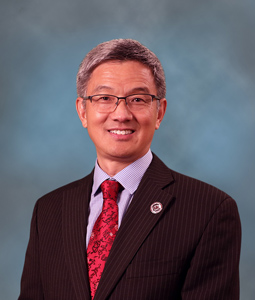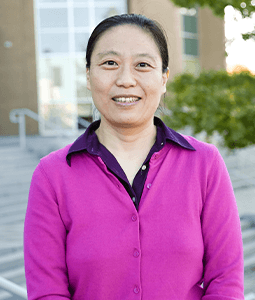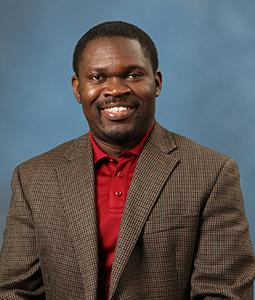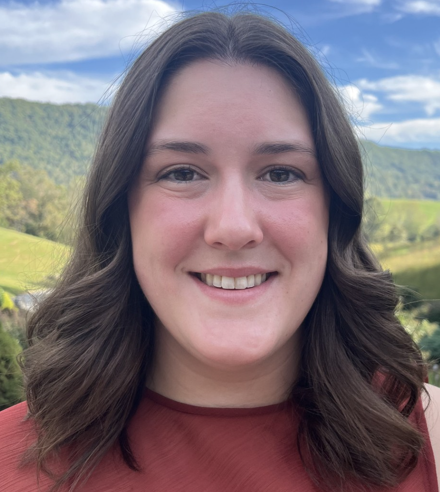R25 c-Scholar Program
Funding support is provided by the National Institute for Allergy and Infectious Diseases (NIH Grant Number: R25AI164581-04S1).
The NIH Strategic Plan for Data Science suggests that a Big Data approach will uniquely advance our understanding of disease prevention, identification, control, and treatment in the coming decades and will be a key to reducing national and global health disparities. Despite rapidly increased efforts in the application of Big Data and advanced data analytics for health science research, the progress of translating Big Data research findings to effective public health and clinical practices for improved health outcomes has been slow due to many challenges. Such challenges include the limited participation of community members in Big Data health science research and a lack of effective communication between data science researchers and communities. As a multi-stakeholder effort, health data science crosses boundaries between research and practice, as well as between science and health policy. The involvement of and communication with members of local communities is critical to actualizing the benefits of data science research.
Program Overview
To address this critical need for community involvement in Big Data health science research, we offer data science training and mentored hands-on research experience to a group of community scholars through the R25 Community Scholar (“c-Scholar”) program. Guided by a citizen science model, the c-Scholar program provides structured support to four community scholars from various governmental and community organizations in South Carolina each year. Specifically, the R25 c-Scholar program (1) identifies and recruits community members interested in participating in Big Data infectious disease research and utilizing Big Data research findings to improve the health outcomes of their communities; (2) implements a multi-module training program that provides mentoring, curriculum-based training, and hands-on research experience to better equip c-Scholars with necessary knowledge, skills, and competence for Big Data infectious disease research; and (3) trains and supports c-Scholars to promote and utilize Big Data research in their communities by developing or improving their necessary professional skills (e.g., health communication, presentation of scientific findings to the public, community outreach and engagement).
Eligibility
All R25 trainees must 1) be a minimum of 18 years of age; 2) work full time either as paid employees or volunteers at SC-based health-serving or health-promoting organizations (e.g., community-based organizations, faith-based organizations, healthcare systems, local governmental agencies); 3) have no advanced degree (e.g., PhD) or formal training in data science or relevant quantitative sciences; and 4) be US citizens or permanent residents unless strongly justified on the basis of exceptional relevance to NIAID.
Individuals with disabilities or disadvantaged backgrounds defined by NIH NOT-OD-20-031 categories A (“individuals from racial and ethnic groups that have been underrepresented in health-related sciences on a national basis”), B (“individuals with disabilities”), C (“individuals from disadvantaged backgrounds”), and D (“women from categories A, B, and C”) are strongly encouraged to apply.
Program Expectations
In addition to regular participation in curriculum-based training, cohort meetings, and hands-on research with their mentor, each c-Scholar is expected to accomplish the following by the end of their year-long program,
- Organize at least one community event to share Big Data research findings with their community
- Participate in a panel discussion for Big Data research at the NIH-supported National Big Data Health Science Conference
- Submit a written report reflecting on their experience and activities in promoting and utilizing Big Data research in their community
- Continue their participation in data science research as community collaborators or in other appropriate capacities
Benefits and Support
The program lasts one year. Each c-Scholar will receive the following support during their training,
• Research incentives totaling $10,000
• Up to $2,000 to cover expenses related to organizing a community event to promote data science
• Up to $2,500 in support to attend a local or national conference in health data science
• Curriculum-based training for skills development in Big Data research and professional development
• Hands-on research exposure under the guidance of a faculty mentor
• Mentoring in Big Data research and professional development
Program Schedule and Commitments
1. Mentoring
1.1 Primary Mentoring
All c-Scholars will be matched with at least one faculty mentor following a two-way matching protocol. All mentors are USC faculty who have been funded by NIH/NSF in data science infectious disease research or relevant areas.
Primary mentoring will be conducted between the trainee and their mentor through regular communication and interaction via email, Zoom, and in-person meetings (at least monthly). Through primary mentoring, the research mentor will provide individualized program guidance and engage the trainee in ongoing research.
1.2 Team Mentoring
In addition to primary mentoring, c-Scholars will receive team mentoring through regular interactions with members of the faculty mentor’s research team.
1.3 Network Building
In addition to the network building c-Scholars will organically experience through participating in the program (i.e., from mentor pool, other trainees, members of research teams) there will be a plethora of additional network building opportunities throughout the program. These opportunities include but are not limited to, involvement in regular meetings of other BDHSC training cohorts (e.g., R25 Junior Faculty Trainees), participation in the National Big Data Health Science Conference, attendance at the Annual BDHSC Retreat, chances to interact with past c-Scholar cohorts, opportunities to attend USC workshops and seminars, etc.
2. Curriculum-Based Training
2.1. Didactic Training
All c-Scholars will complete a self-paced 24-hour curriculum-based didactic training covering six major topics (“Introduction to Big Data”, “Big Data Analytics, “Big Data Visualization and Interpretation”, “Big Data and Public Health Practice”, “Big Data and Clinical Practice”, and “Social and Ethical Issues in Data Science”).
2.2. Monthly Journal Clubs
c-Scholars will participate in a monthly journal club. Each c-Scholar will lead two meetings where they lead a discussion on an assigned article (typically newly published peer-reviewed articles from high-impact medical, public health, or socio-behavioral journals). Discussions will focus on the importance of big data analytics in the context of infectious disease research and how to interpret/connect the results to practice. Mentors will occasionally deliver skills development workshops during the monthly journal club meetings.
3. Hands-on Research Experience
The PDs and program faculty have built an infrastructure of research training and mentoring in Big Data through a series of extramurally funded projects on infectious disease research, which will provide trainees with ample opportunities to participate in Big Data infectious disease research.
Each R25 c-Scholar will be required to participate in ongoing infectious disease-related research that utilizes BDA. During the hands-on research, each trainee will work with one or more mentors and participate in the research activities of a funded Big Data project. R25 c-Scholars will be expected to contribute to the existing projects by participating in the research as a team member, communicating with the research team members, providing insights (from their own perspective and that of their communities) on the research, and developing their own interest and future engagement in BDA research in infectious disease.
4. Community Activities
4.1 National Big Data Health Science Conference
Trainees will attend and present at the National Big Data Health Science Conference. This signature annual BDHSC event is a two-day conference held in Columbia, SC. The conference includes keynote speakers from government, industry, and academia, as well as breakout sessions that cover various types of Big Data and BDA skills. The trainees will participate (along with other R25 and T35 trainees) in a panel discussion on how to improve community and population health using Big Data research.
4.2 Community Event
Each R25 c-Scholar is expected to organize at least one community event (e.g., community town hall meeting or other forum) to share Big Data research findings with their respective communities, submit a written report to reflect their experience and activities in promoting and utilizing Big Data research in their community, and continue their participation in data science research as community collaborators or in other appropriate capacities.
Individualized Development Plans
Upon acceptance of the offer to join the R25 c-Scholar program, trainees will work with their research mentors to develop an IDP. The IDP is a mutually agreed upon contract between the trainee and mentor outlining their plans and expectations for mentorship, research engagement, and other program deliverables. The IDP will be reviewed and approved by the PDs. The digitalized contract will document the following:
- Mentorship goals and outcomes, including the potential BDA research project topic;
- Specific roles and expectations of each party;
- Anticipated numbers and types (in person or virtual) of meetings;
- Plan for hands-on research engagement;
- Plan for self-paced curriculum training;
- Plan for professional development;
- Additional logistics for the one-year formal mentoring relationship, including joint attendance at research workshops, journal clubs, seminars, retreats, and other training activities to increase visibility and expand their research network;
- Timeframe for developing the presentation for the National Big Data Health Science Conference
- Timeline and tentative plans for planning the required community event.
As mentors and trainees work together, they will regularly review their IDP to ensure that all goals are met and mutually agreed upon changes are documented. These contracts will be unique to each trainee, depending on the trainee’s background and research interests.
Application and Selection Procedure
Interested individuals should attach their resume or CV to an email expressing their interest in the program and their desire to promote and utilize Big Data infectious disease research in their community to Dr. Banky Olatosi (olatosi@mailbox.sc.edu) by close of business on September 1, 2025.
The R25 Executive Committee will evaluate all applications and contact finalists for additional documentation, including a letter from their employer or supervisor stating their approval and agreement for the applicant to participate in this one-year program.
Important Dates (subject to change)
Application deadline: September 1, 2025
Selection of finalists: September 22, 2025
Formal acceptance of offer and submission of follow-up documentation: September 29, 2025
Program start: October 6, 2025
Contact Information
For questions related to various aspects of the R25 e-Scholar program, please contact any of the following individuals:
Xiaoming Li, Ph.D., xiaoming@mailbox.sc.edu
Jiajia Zhang, Ph.D., jzhang@mailbox.sc.edu
Bankole Olatosi, Ph.D., Olatosi@mailbox.sc.edu
Elizabeth Baird, MPH, eb136@mailbox.sc.edu
Program Mentors
All R25 c-Scholars will be matched to one or more mentors following the two-way matching protocol that has been established and implemented in the parent R25 program. The R25 c-Scholar mentors will be drawn from the existing pool of multidisciplinary mentors.
Program Leadership

Xiaoming Li, PhD
Program Director, Professor and Endowed Chair, Health Promotion, Education and Behavior, Arnold School of Public Health

Jiajia Zhang, PhD
Program Co-Director, Professor and Biostatistics Division Director in the Department of Epidemiology and Biostatistics Arnold School of Public Health

Bankole Olatosi, PhD
Outreach and Engagement Coordinator, Assistant Professor and MHA Program Director, Health Service, Policy and Management, Arnold School of Public Health

Elizabeth Baird, MPH
Program Manager, USC Big Data Health Science Center, Arnold School of Public Health
